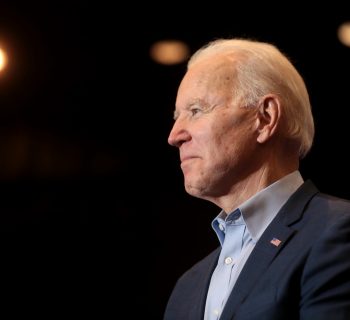EXCLUSIVE FOR EL MAGONISTA: A response to the commentary by Thomas Zimmer on the state of American democracy.
Op-Ed by Profe. Gonzalo Santos | JAN. 19, 2022
Reading the thoughtful commentary by Thomas Zimmer on the state of American democracy, I came to realize that it takes a historian to remind us that over the long arch of American history, the exceptional, relatively brief, state of the American political system has actually been a functional multiracial, inclusive, pluralistic democracy - no more than half-a-century old, and under direct assault today. The long-prevalent, default state of political life in the United States, since its colonial inception and towards which we are in imminent danger of relapsing again, has actually been living under an exclusively white, Christian, patriarchal system where only white Christian men enjoy full democratic rights, but nobody else.
Of course, class matters, too, and the expansion of democracy from the initial white, Christian propertied elites to include non-propertied white, Christian, males has its own story of tremendous social struggle (extensions of which were attained, usually, at the expense of present and incoming non-white, racialized others). In fact, the expansion of whiteness itself served as a marker of democratic inclusion - as experienced by non-WASP European "ethnic" immigrants, from the republican period on until the mid-20th century.
There is a term to describe this highly restricted form of white nationalist democracy - "Herrenvolk Democracy," a system of government in which only the majority ethnic group participates in government and have access to whatever democratic processes may exist for them to enjoy, while minority groups are disenfranchised and socially marginalized (at the most extreme enslaved, expelled or targeted for genocide).
"Majority" and "minority" here do not necessarily mean numerical attributes, but refer to those social groups monopolizing social, economic, and political power (women, in that sense, become a "minority" group in highly traditional patriarchal societies). The term stands for "rule by the master race" in German - a white supremacist conception of the nation to be designed, built, and maintained.
The term Herrenvolk Democracy was coined and first used in 1967 by a South African sociologist of race & ethnic relations, Pierre van Den Berghe, in his influential book "Race and Racism." At that time it was thought it described well two rigid, racially segregated social systems: one, in the throes of being dismantled by the same government that erected it in the U.S. South - Jim Crow de jure segregation -, and the other in the process of being firmly implemented in South Africa, called Apartheid.
Van Den Berghe's theoretically equating the two countries' social systems despite the large historical and demographic differences was his way of proving that race and racism were socio-historical constructs that could be understood as living vestiges of a more primordial, socio-biological tendency to form group-exclusive peoplehoods, considered after WW II and the defeat of the fascist proclamations of the Aryan (or Japanese) Master Race, anachronistic and dysfunctional in the modern world.
What was not understood in the 1960s - an era of triumphant, "color-blind" American liberalism AND Marxist-Leninist socialism in the partitioned zones of the Cold War - was precisely how well-adapted and resurgent racism and ethnonationalism would become in the post-Cold War era, an era of deep crisis of both secular, humanist ideologies.
We have seen the re-emergence of intolerant, aggressive ethnonationalisms in the PanEuropean world - the so-called "culture wars" in the U.S., the violent attempted secessions in the Baltics and the former Soviet Union, and the resurgence of proto-fascist white nationalist movements throughout Europe. Muslims, Middle Eastern and Northern African immigrant and refugee communities and flows have been targeted for expulsion, social stigmatization and marginalization, or denied entry.
The phenomenon is not exclusive of the Pan European world - we see plenty of ethnonationalist state violence targeting "minorities" endemic in Africa, recurrent in various regions of India and Pakistan, everywhere where there are Kurds, in Myanmar (Burma) against the Rohingya, and now in China against the Uyghurs and Tibetans.
The world, it seems, has lost its fundamental ideological bearings when it comes to defining peoplehood and nationhood. "Who's We?" has become, again, the most burning question inside many societies - advanced and modern democracies as well as less developed and/or authoritarian countries. The problem of the era of global European white supremacy is becoming the problem of the era of socially-fragmenting globalization.
Social Scientists of all schools - liberal, Marxist/socialist, even moderately conservative sociobiologists like van Den Berghe - thought that, whatever the origin and nature of race and racism, ethnicity, and even nationalism, these socially enclosed categories surely were doomed to disappear under the tremendous dynamic social interactions and intercourse of the modern capitalist world. They did not have a theory as to what would happen if the modern capitalist world-system entered into its own secular, terminal systemic crisis. The liberals and conservatives thought it would endure for the longue durée; Marxist-Leninists thought it would lead to a classless - thus conflict-free, exploitation-free - single, prosperous, and harmonious global social system where countries would be a thing of the past.
But new ideologies of irreconcilable, unsurmountable difference emerged and filled in the vacuum left by the discredited secular liberal/Marxist-Leninist ideologies of the 20th century - blending the toxic ingredients of ethnonationalism, racial supremacy, xenophobia, and religious intolerance.
The United States is at the very epicenter of this sociopolitical crisis of peoplehood, and must learn to enhance - not destroy - its incomplete system of multiracial, plural democracy. And just as it has lost its grip on global hegemony and must now learn to participate in, and contribute to, the world not as an imperialist power above all others, but as a major contributor to the well-being of the planet. If the U.S. implodes into a exclusivist, anti-democratic and racialist social order, it will drag the world down considerably - especially the region around it in North America. But the ripple effect will reach far and wide. The world cannot afford that.
American democracy as we know it and built it over the past 60 years since the multiracial Civil Rights era is in crisis. As we fight to rid the U.S. of its now-broken duopoly, corrupted and beholden to a bloated plutocracy that rules the country for its own benefit, while it sponsors "billionaire populism" to divide us along the old racial/religious lines anew, we have to fight back this imminent assault of the Trumpist neofascists on what is left of our weakened democracy, and stop them from installing an even worse, authoritarian and undemocratic state.
And to do so we must launch a radical, bold new political project to install a more inclusive and democratic social contract than we ever had. Nothing will stay the same, either we advance, or we will be forced to retreat.
The choice, and the burden, is on all our shoulders. The future is bright, if we fight for it - or will turn very dark, indeed, if we don't.
Everyone to their appointed stations. The battle for our democracy has been joined!
¡Desapendéjense y muévanse!
#AnotherWorldIsPossible
#AnotherNorthAmericaIsNeeded
#AnotherDemocracyIsRequired






